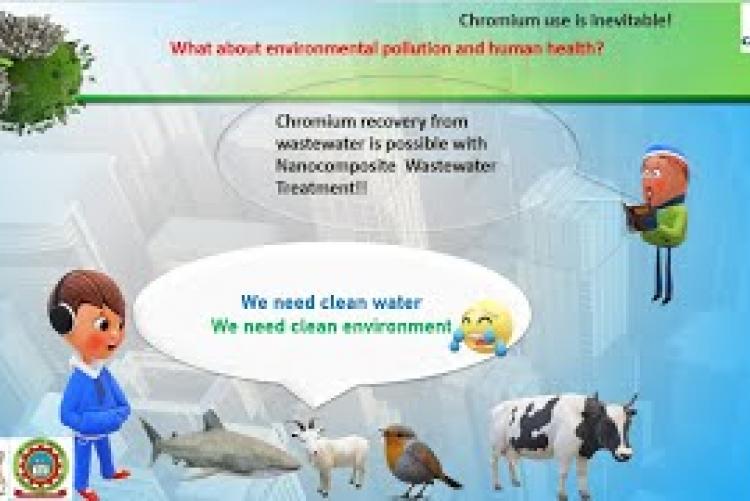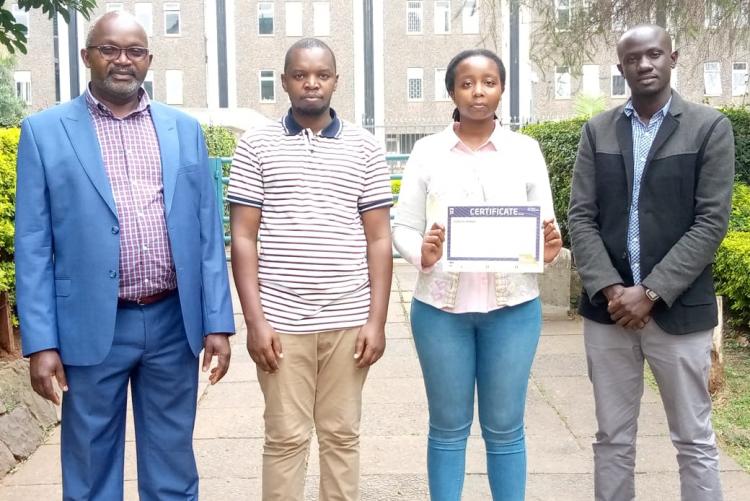Young entrepreneurs and academics from Kenya, Ghana, Korea, India, Mexico and Denmark pitched their water solutions in a unique, hybrid setting. Over 90 Students, 2 Foundations, 24 Companies, 21 Universities, 11 Start-ups, 4 Embassies, 19 Mentors and 13 Speakers participated in the DTU-initiative Next Generation Water Action, which culminated on May 18, 2021, with a successful part virtual, part physical celebration of all the startups and student teams that made it to the finals. Check the Winners’ Overview.
The initiative is powered by innovating pioneers within the water industry: Poul Due Jensen Foundation - Grundfos Foundation, Ramboll, International Water Association, YWPDK – Young Water Professionals Denmark, Innovation Centre Denmark Seoul, Innovation Centre Denmark Bangalore and Trade Council of Denmark in Sub-Saharan Africa.
Kenya was celebrated after talented Team Kenya students, check their pitch here:Team 2.KE, won two competitive awards; Most promising idea of the Grundfos Challenge and most importantly, the IWA World Water Congress 2022 Scholarship. Kenya was represented by Robert Kipng’eno Too (MSc. Mechanical Engineering Student & Team Leader) and Angel Nyokabi Gacheru (Mechanical Engineering undergraduate finalist), both from the University of Nairobi; Loice Mahugu Muthoni and Yannick Kyungu (Environmental Engineering & Management) from JKUAT; and Chrispin Ouko Zamzu and Farida Gitonga (MSc. Mechanical & Water Engineering respectively) from Pan African University-JKUAT. They participated in the Grundfos Challenge whose theme was “Resource recovery & brine management from municipal and industrial water treatment facilities.”
The team, with the mentorship and immense support of their supervisors; Dr. Thomas Mbuya Ochuku (Senior Lecturer and Chairman, Department of Mechanical & Manufacturing Engineering, University of Nairobi) and Prof. John Gathenya (JKUAT), came up with a localized solution concept by designing nanocomposite materials with the ability of removing Chromium and other toxic pollutants from the industrial effluents, thus ensuring safely discharge of industrial wastewater into the environment, and at the same time recovering these minerals that are of immense value to the industry, especially leather, steel, textile and paint manufacturing industries. Prototyping is their next phase.
Local innovations on Industrial Wastewater Treatment/ Scarce & Toxic Minerals Recovery can ignite the hope of addressing the consequences of climate change, protection and regeneration of nature by preserving natural resources for future generations. This is a step to ensuring a healthy, happy and prosperous society as well as a circular economy all over the world. This is a milestone in addressing cancer menace that is on the rise in Kenya, a health issue greatly attributed to industrial pollution and other unsafe practices on the use of some toxic industrial products.
- Log in to post comments


